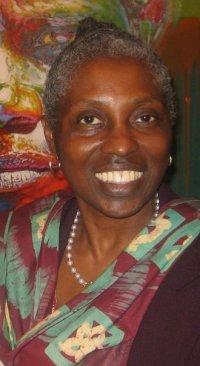Chiku Awali African Dance, Arts & Culture of Rockland, Inc.
Purpose Prize Fellow 2014
This former corrections officer uses traditional African rites of passage to help young African-Americans avoid jail and teen pregnancy.
Dance was my salvation growing up in Bed-Stuy, Brooklyn. It kept me away from alcohol, drugs, jail and teen pregnancy – rites of passage for many of my friends. The arts helped me to think differently about myself. I believe they can do the same for others.
I left dance behind because I wanted to help people, especially those on the opposite side of the law. I found that opportunity during a 38-year career with the New York State Department of Corrections. But my belief in the arts never wavered. I encouraged inmates to stage musicals such as Annie and Into the Woods . As I neared 60 and the end of my career as a prison warden, I still saw too many black teens behind bars or pushing a stroller. I wanted to share my inspiration for a better life.
So in 2003, I founded Chiku Awali African Dance, Arts & Culture. Our Rites of Passage program uses African storytelling traditions to teach 12 teenagers a year long-forgotten African mores and rituals.
-
Hundreds of local youth have participated in Chiku Awali classes, workshops, and demonstrations since 2003
-
Rites of Passage program accepts up to 12 teens each year
-
All program graduates have gone on to college or the military, many returning to serve as mentors
The first ritual is the adinto ceremony, when kids choose an African name and learn about a tribe’s traditions and customs. Each month, every child creates and shares a story based upon the previous month’s workshop. They also complete 24 hours of community service throughout the year.
The final ritual is the durbar , similar to a bar mitzvah , quinceañera or dipo of the Krobo tribe of Ghana . Community members bring small donations to reward graduates for completing the program. But the most important rewards are the respect they earn, through their steadfast commitment and maturity, and the personal knowledge and insights they’ve gained. After completing the program, our youth are less likely to be ashamed of their ethnicity or self-image.
We focus on life and leadership skills, such as conflict resolution, team-building, decision-making, career- and college-preparation, etiquette, marriage and family, community service and health and wellness. We’ve even travelled to Africa to perform. It’s amazing to watch a shy young child jump up and dance with the drumbeats.
If you say to people, ‘I care about you, and I think you can do a lot with your life if you have a guiding hand,’ you encourage them to be better. All of our Rites of Passage graduates have gone on to college or the military. Many have come back and served as young mentors. We give children a new vision of their past, so they can see their future.




